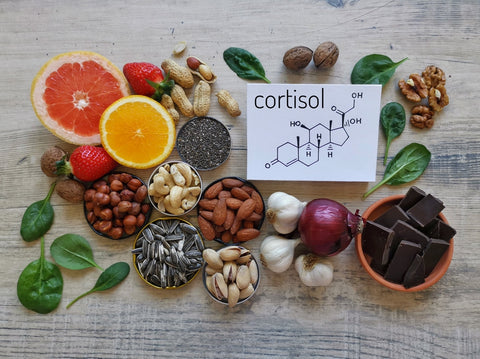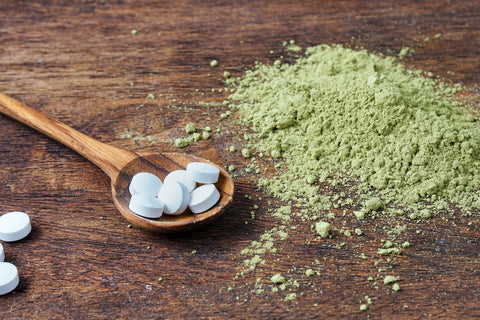In today’s fast-paced world, many of us constantly search for answers on how to lower cortisol—the body’s primary stress hormone. From the morning rush to late-night worries, understanding how to keep our cortisol in check is more important than ever. Elevated stress isn’t just uncomfortable; it’s a real health risk, linked to hypertension, weight gain, diabetes, and even a weakened immune system [1][4]. So, what does the science say about lowering cortisol? Let’s dive into the latest facts, research, and easy lifestyle shifts that will help bring your stress—and your cortisol—down to healthy levels.
What Is Cortisol, and Why Does It Matter?
First things first: cortisol is the body’s main stress hormone. Produced by the adrenal glands, it’s released during challenging times—think of it as your body’s alarm system. A little cortisol is fine and even helpful for focus and energy. But over time, if your body produces too much, it can lead to serious physical and mental health concerns: high blood pressure, weight gain (especially around the midsection), diabetes, poor sleep, low immune function, and more [1][4].
One natural way to support healthy cortisol and overall wellness is through functional mushrooms—learn about the benefits of functional mushrooms like Lion’s Mane, Chaga, Reishi, and more.
Thankfully, you don’t have to feel stuck in a stress cycle. Leading medical experts agree: your daily choices—what you eat, how you move, how you sleep, and how you deal with stress—can all help keep cortisol at healthy, balanced levels [1][2][3][4].
Step 1: Eat to Support Your Cortisol Levels
Your first tool for lower stress? Your plate. Research shows that a balanced, whole-food, plant-based diet works wonders for taming cortisol [1][4]. Here’s how to get started:
- Focus on Whole Foods—Load up on colorful fruits and vegetables, whole grains, legumes, nuts, and seeds.
- Minimize Processed Foods—Skip foods loaded with added sugars, artificial ingredients, and preservatives, as these can spike cortisol and inflammation.
- Fill Up on Fiber—A healthy gut plays a key role in hormone balance, including cortisol. Fiber-rich foods nourish your gut bacteria and help with this process.
Don’t Forget about Healthy Fats
Omega-3 fatty acids—found in fish, chia seeds, and flaxseeds—may help lower cortisol naturally [4].
Boost Gut Health with Fermented Foods
Bring on the yogurt, kefir, miso, and tempeh. These cultured foods help your gut, which in turn helps regulate your stress hormones [4].
If you're interested in holistic options, mushroom coffee can deliver gut-friendly compounds plus adaptogens in your morning cup—discover why mushroom coffee provides a smoother, less stressful energy “kick” compared to regular coffee.
Step 2: Get Moving, The Smart Way
Exercise is one of the best ways to beat stress and lower cortisol—but it’s all about balance. Consistent physical activity, especially when you truly enjoy it, can dramatically lower stress in your body [2]. The key? Mix it up, but don’t overdo it!
- Combine Aerobic Exercise and Strength Training—Aim for activities like walking, cycling, swimming, and a couple of sessions of resistance or light weight training each week.
- Watch Out for Overtraining—Too much high-intensity exercise without rest can actually raise cortisol. Listen to your body, rest when needed, and don’t be afraid to take time off if you’re feeling run down [2].
Adaptogenic ingredients, like those found in mushrooms and herbs, may further support recovery and stress balance post-workout. Learn how Cordyceps can help boost energy, stamina, and support your body's resilience against stress.
Step 3: Prioritize Sleep Like Your Health Depends on It (Because It Does!)
Not enough sleep? Your stress and cortisol levels can soar [2]. Science shows a solid 7 to 9 hours of restful sleep per night is vital for hormone regulation. Here’s how to get those zzz’s:
- Keep a Consistent Sleep Schedule—Go to bed and wake up at the same time every day, even on weekends.
- Wind Down Properly—Try a relaxing bedtime routine: read, listen to calming music, or practice gentle stretches.
- Limit Screens and Caffeine at Night—The blue light from phones and TVs fools your body’s internal clock, and caffeine can keep your system wide awake [2].
Certain natural supplements—especially adaptogens like ashwagandha—have been shown to improve sleep quality and reduce stress. See how ashwagandha supports restorative sleep and balanced stress hormones.
Step 4: Turn On Your Inner Calm—Mindfulness and Relaxation
One of the fastest ways to lower cortisol? Calm your mind. Mindfulness practices actually trigger your “rest and digest” system, shutting off the stress response, lowering tension, and bringing happiness hormones online [2][3][4]:
- Deep Breathing—Even a few minutes of slow, deep breaths can calm your mind and lower cortisol.
- Meditation—A guided session, quiet meditation, or even walking meditation helps anchor you in the present (there are free apps for this!).
- Yoga and Tai Chi—Gentle movements relax muscles and mind, supporting lower cortisol.
- Qi Gong—This ancient practice is simple and low-impact, but it packs a stress-busting punch.
Just five to ten minutes daily can make a huge difference [2][3].
Many people also use wellness beverages, like mushroom coffee, for their calming and focusing effects during mindful practice.
Step 5: Don’t Forget to Laugh, Play, and Connect
Did you know laughter—yes, even “fake” or forced laughter—can substantially drop your cortisol? Activities that spark joy and build connection with others also have powerful stress-busting effects [3]:
- Watch a comedy, tell silly jokes, or look up goofy animal videos
- Dance, sing, or listen to your favorite music
- Carve out time for hobbies and fun with loved ones
Moments of joy are not just luxuries—they are vital tools for a healthy stress response.
For a deeper dive on supporting your mood, memory, and brain health with natural supplements, check out our guide to nootropics and cognitive enhancers—including Lion’s Mane and other mushrooms.
Step 6: Be Caffeine-Aware
Caffeine pumps up alertness—but too much can leave you jittery and jack up your cortisol [4]. If you’re sensitive, feeling anxious, or under a lot of stress, experiment with cutting back. Try gentler alternatives or switch to caffeine-free herbal options.
Prefer coffee but want less stress? Mushroom coffee offers a smoother energy lift with less caffeine and additional adaptogen support.
Step 7: Quit Smoking
If you’re still reaching for those cigarettes, here’s yet another reason to quit. Smoking is directly tied to higher cortisol and other biomarkers of chronic stress [4]. Quitting delivers both immediate and long-term benefits for both body and brain.
Step 8: Build Strong Relationships and Manage Your Workload
You can’t always banish stress, but you can ask for help and set boundaries. Lack of social support, chronic overwork, and ongoing social conflicts are major drivers of high cortisol [1][3]. Block out time for the people who care about you, and don’t hesitate to get professional guidance if needed.
What About Supplements?
For some people, specific vitamins and minerals can give a helping hand:
- Magnesium—Known for its calming and hormone-supporting effects.
- B12 and Folic Acid—Support healthy metabolism of stress hormones.
- Vitamin C—A powerful antioxidant believed to help manage cortisol [1].
But remember, talk to your healthcare professional before adding any new supplements—especially if you have underlying health conditions or are taking medications [1].
Curious how to choose the right kind of supplement for your goals? Read our guide comparing mushroom coffee, capsules, powders, and gummies to find your perfect fit.
Table: Quick-Glance at Proven Cortisol-Lowering Strategies
| Approach | Key Action |
|---|---|
| Diet | Plant-based, high-fiber, minimize processed foods |
| Supplements | Magnesium, B12, folic acid, vitamin C (if needed) |
| Exercise | Regular, balanced activity; avoid overtraining |
| Sleep | 7–9 hours nightly, consistent schedule |
| Relaxation | Meditation, deep breathing, yoga, tai chi |
| Joy/Hobbies | Laughter, music, social connections, hobbies |
| Caffeine | Limit/avoid excess intake |
| Smoking | Quit if applicable |
When Should You Seek Help?
If stress feels constant or overwhelming, and self-help strategies aren’t moving the needle, it might be time to call in an expert. Prolonged, unchecked cortisol can have far-reaching effects. Medical professionals can help you uncover the root causes and develop a personalized plan—sometimes, hormonal imbalances need careful attention [1].
Bringing It All Together
How to lower cortisol doesn’t have to be complex—or out of reach. Think of your cortisol management toolkit as a collection of simple daily habits, fueled by evidence-based science. Plant-powered meals, joyful movement, mindful breathing, solid sleep, meaningful relationships, and, when needed, key supplements—these are your weapons in the fight against chronic stress.
Start with any one step and build from there. Small changes add up, helping you feel calmer, more energized, and truly resilient—even in the busiest of times. Your brain and body will thank you.
For even more support and personalized advice, don’t hesitate to seek out the guidance of a qualified medical professional. Managing stress is not just about functioning—it’s about thriving.
References
[1] https://www.henryford.com/blog/2025/05/how-to-lower-your-cortisol-levels
[2] https://www.bswhealth.com/blog/how-to-lower-cortisol-naturally-10-ways-to-reduce-stress-and-feel-great
[3] https://www.healthline.com/nutrition/ways-to-lower-cortisol
[4] https://www.medicalnewstoday.com/articles/322335
[5] https://www.goodrx.com/well-being/supplements-herbs/reduce-cortisol


